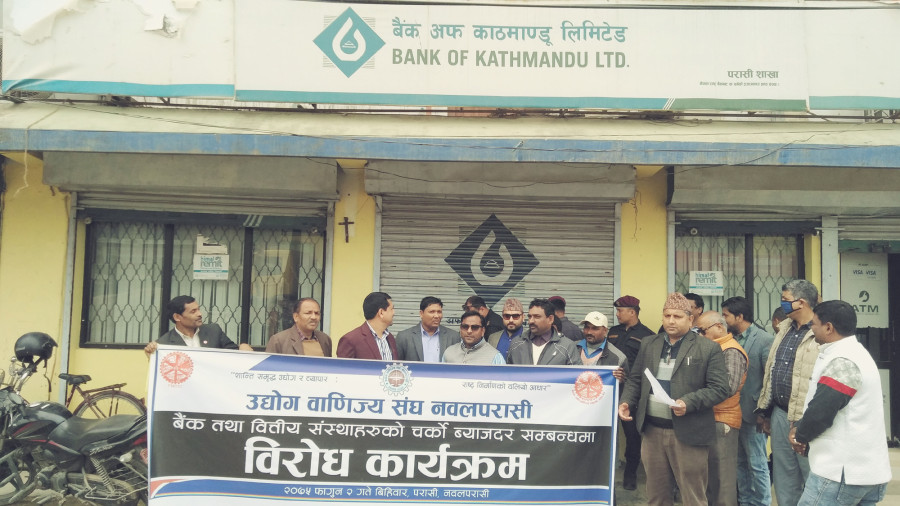Money
Federation backs down from demand for interest rate cut
The Federation of Nepalese Chambers of Commerce and Industry has decided to back down from its demand for lower interest rates.
Bibek Subedi
The Federation of Nepalese Chambers of Commerce and Industry has decided to back down from its demand for lower interest rates. The move is likely to diffuse the stand-off between bankers and industrialists which has been making headlines for the past few months with factory owners threatening to launch protests if interest rates are not slashed.
A meeting of the executive committee of the Federation of Nepalese Chambers of Commerce and Industry on Monday said a lending rate cut was not easy as the banking industry was reeling under an acute shortage of loanable funds, according to participants.
A majority of the participants at the meeting were of the view that the high interest rate charged by banks and financial institutions was due to the high interest rate they are offering on deposits, said the source.
“Almost all the participants at the meeting said the Federation shouldn’t ask the central bank or the government to intervene to bring down the interest rates on loans charged by banks and financial institutions,” said a member of the executive committee of the private sector apex body.
“There was an agreement that the Federation would not lead any kind of protest to bring down the interest rates, but it would continue its engagement with the Finance Ministry and central bank officials to explore ways to provide relief to businesses hit by the high interest rates.”
Federation President Bhawani Rana told the Post that they had not backtracked from their demand, but she admitted that that there was some sort of introspection by the participants at the meeting.
“We know that there is a shortage of loanable funds with banks and financial institutions; but we still stand by our opinion that lending rates are high, and that they are hurting businesses,” said Rana.
“As the central bank has introduced policies to bring down the interest rates on lending through the mid-term review of the monetary policy, we want to see if they will be effective.
Also, we have agreed to increase our engagement with the central bank and the Finance Ministry to find an amicable solution to the current problem.”
When industrialists in the eastern region threatened to stop paying their repayment installments to banks accusing them of unilaterally increasing the interest rates on loans, the federation backed their protest programme with Rana giving the government a 15-day ultimatum to reduce the lending rates.
Industrialists have been demanding that the interest rate on loans extended to productive industries should not exceed 7 percent while the rate on commercial loans shouldn’t be higher than 9 percent. The high interest rate has allowed banks and financial institutions to enjoy rising profits while domestic industries are being pushed to the verge of closure, according to the industrialists.




 17.12°C Kathmandu
17.12°C Kathmandu














